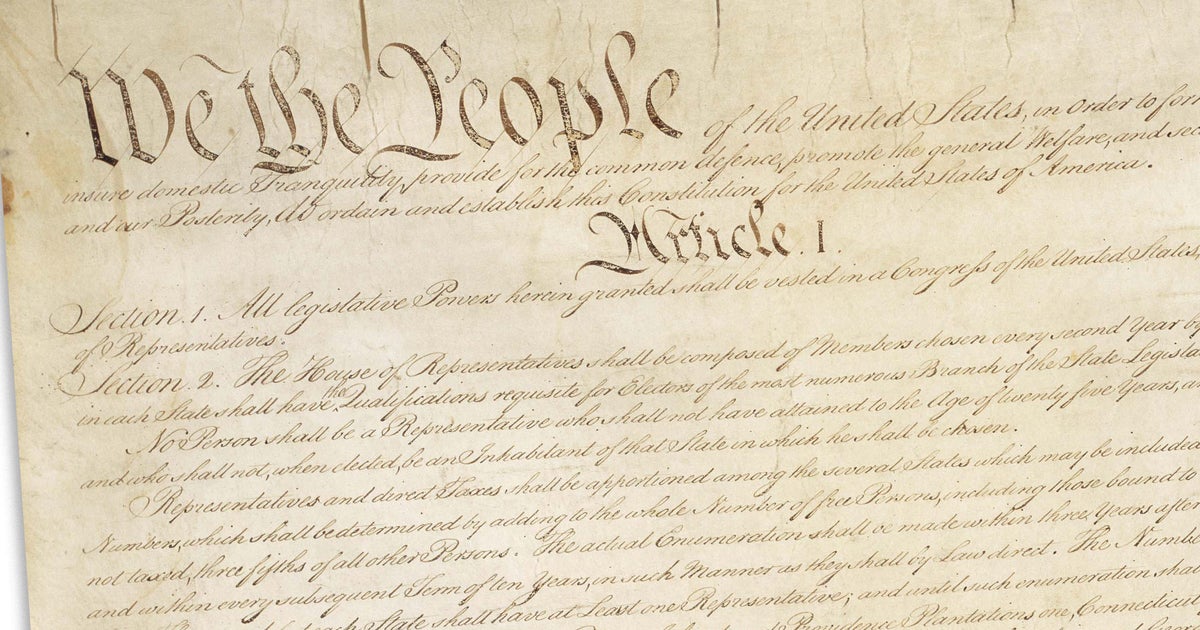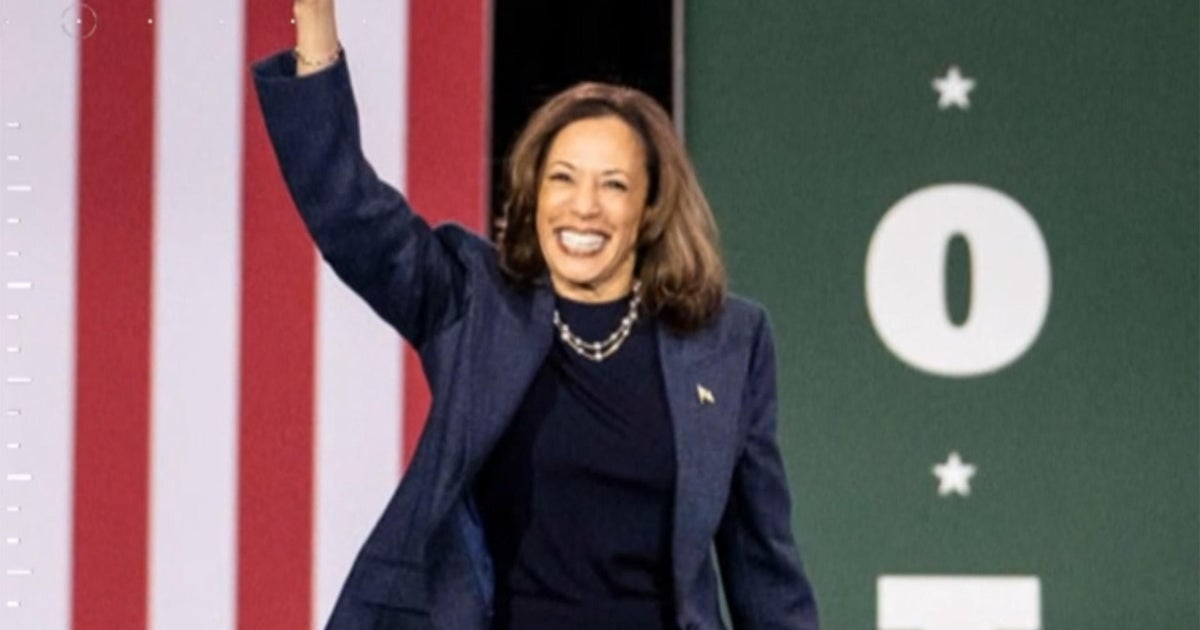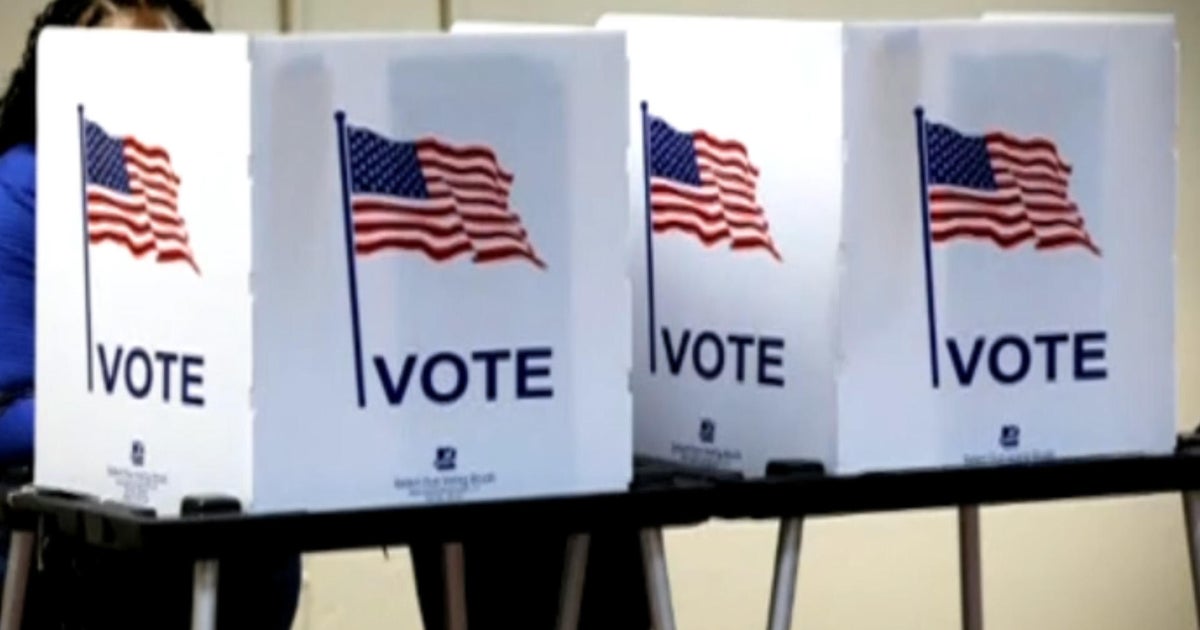CBS News
What Georgia election officials want voters to know about 2020 claims | 60 Minutes
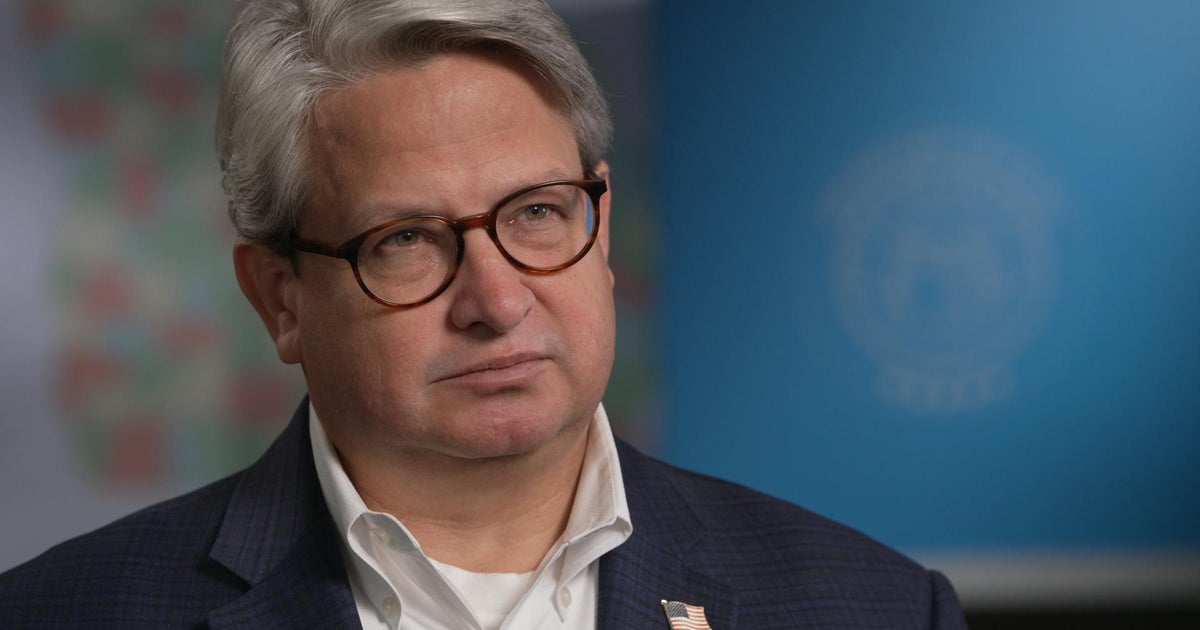
Tuesday, Americans will consider a question more vital than who wins the White House. They’ll decide whether they have faith in the ballot. Whether Jan. 6, 2021 was the end of chaos or the beginning. Election fraud lies are aimed at destroying confidence. You’re about to hear why they are lies. Gabriel Sterling is a messenger of election truth. He’s the Republican chief operating officer for the Georgia secretary of state who runs elections there. Georgia was the center of the scheme to overthrow the 2020 election. Sterling says these are the stakes this Tuesday.
Gabriel Sterling: People have to have faith in the outcomes, and for 200-some-odd years we had to have the acceptance of the person who came in second or lost to say, “You know what? I lost. I will come back again and fight in two years.” The reason we have ballots is to avoid bullets. And if you say, “Ballots don’t matter anymore,” there’s only one logical direction to go. And that’s not healthy in any democracy.
Scott Pelley: Why should Americans have confidence in this election?
Gabriel Sterling: Every state in this country now has poked and prodded and looked at their processes. And we know that while we all do it slightly differently, everybody assures that there’s one person and one vote. Everybody assures that there’s a single ballot cast. Nearly every state in the Union now has audits after the fact. Every state in the Union tests their equipment beforehand in a public way. We have tons of people, processes and policies in place in all 50 states and the district to assure that the outcome of the election is correct.
Scott Pelley: And there are millions of people who are skeptical about what you just said.
Gabriel Sterling: There’s always some level of skepticism. It’s always there but it’s reached a different level in the 2020 and 2024 elections.
In the 2020 election, President Trump lost Georgia by a slender 11,779 votes. Two recounts confirmed his loss, but he said this.
Donald Trump (on Nov. 26, 2020): Nobody wants to see the kind of fraud that this election has really come to represent, we are looking at things that are looking at things that are so bad in Georgia.
Four days before the vote was to be certified on January 6th, Trump called Sterling’s boss Georgia’s Republican secretary of state, Brad Raffensperger.
60 Minutes
Donald Trump (on call): So, look, all I want to do is this. I just want to find 11,780 votes, which is one more than we have.
In a state where Republicans controlled every branch of government, Raffensperger stood up to Trump on the call.
Brad Raffensperger (on call): We have to stand by our numbers. We believe our numbers are right.
Trump’s lawyers brought shocking tales of fraud to the legislature. But investigations by the state police, FBI and Raffensperger’s office found none was true.
Brad Raffensperger: They said there were 66,000 underage voters. There were zero. Then they said that there were 2,423 non-registered voters. There were zero.
Scott Pelley: But you’re a Republican. He was your president.
Brad Raffensperger: I work for the people of Georgia. I respond and I work for the voters of Georgia. My job is to run a fair, honest, accurate election.
But fairness and honesty were met with threats of violence.
Gabriel Sterling (during press conference): It has all gone too far.
Death threats to his election workers snapped Republican Gabe Sterling’s patience.
Gabriel Sterling (during press conference): It has to stop. Mr. President, you have not condemned these actions or this language. Senators, you have not condemned this language or these actions. This has to stop. We need you to step up and if you are going to take a position of leadership, show some. Stop inspiring people to commit potential acts of violence. Someone’s gonna hurt. Someone’s going to get shot. Someone’s going to get killed.
His warning was five weeks before January 6th.
More than 1,000 rioters have been convicted—just part of the election lie chaos. Trump filed 64 lawsuits and lost 63. Lawyer Rudy Giuliani was sued to bankruptcy after falsely accusing Georgia election workers of fraud. Fox News paid $787 million to settle a suit that said Fox knew it was lying about the election. And Trump was indicted in Georgia. He’s pleaded not guilty to election interference but four co-defendants did plead guilty to related charges. Sterling hoped his message would get through to everyone but it hasn’t.
Gabriel Sterling: And there’s some you’re never gonna convince and you just have to accept that you’re never gonna convince them. But for the vast majority of Americans who have questions, basically they think, “Well, if there’s this much smoke, there must be something. Nobody would lie this much about it.” So I think there’s savable souls there, who basically they want to understand. We have to tell ’em over and over again, “Voter suppression’s fake. Voter fraud is fake. It’s used to raise money and get you angry.”
Trump riled supporters with election denial from the very first time he was ever on a Republican ballot. He lost the Iowa caucus in 2016 and wrote… “Ted Cruz didn’t win Iowa, he stole it.” Later, when Trump won the national electoral vote but not the popular vote, he posted “I won the popular vote if you deduct the millions of people who voted illegally.” Later, a fraud commission he appointed, disbanded when it couldn’t find the evidence.
Scott Pelley: People are gonna say that the election was stolen. It’s inevitable.
Gabriel Sterling: Yes, it is.
Scott Pelley: And to them you say what?
Gabriel Sterling: I’m sorry that your candidate lost. But the rules are the rules. The law is the law. And the count is the count.
60 Minutes
David Becker: Georgia in many ways is a model. They do a lot of things exceptionally well.
Few people know elections like David Becker. At the Justice Department he helped enforce voting rights. Later, he led the creation of a voter registration data center that is used today by half the states. Becker is a CBS News election consultant.
David Becker: One of the things everyone should understand is the claims about election theft and fraud are not driven by the actual policies that exist in the states. They’re driven by one factor, and one factor only. And that’s whether your candidate won. Sadly tens of millions of Americans have been targeted for this disinformation. They’ve been preyed upon by losing candidates and foreign adversaries. And importantly, they have donated money. Because a lot of this is financial. There’s a financial incentive for those who’ve spread the lies, who have raised, let’s face it, hundreds of millions, if not billions of dollars off the lie that our elections aren’t to be trusted.
Scott Pelley: Let’s look at some of the conspiracy theories of fraud. We’ll take them one at a time. “Bogus votes are electronically inserted into tabulation machines.”
David Becker: They’re not connected to the internet. They are under strict physical chain of custody. It is really hard to get access to a physical machine and do anything to it. And even if there were some attempt to hack the machine or, probably more likely, have some kinda malfunction of the machine, the audits would catch it.
Scott Pelley: Another of the conspiracy theories is that illegal immigrants are voting by the millions.
David Becker: That is a 100% false. Every single voter has to give a driver’s license number or social security number, which is matched against files, databases that are held to make sure the voter is who they say they are, and they’re eligible to vote. And we also know that states who have gone looking for non-citizens voters have found shockingly few even potential non-citizen registrants. Ohio just recently announced that in a period of time of over a decade it had found six possible cases of non-citizens voting.
Scott Pelley: But fraud does happen, doesn’t it?
David Becker: It happens very rarely. We know how much fraud in this country happens. We know it’s not zero, but it’s very, very close to zero.
Scott Pelley: We’re not talking about millions of votes or hundreds of thousands of votes?
David Becker: No, we’re talking about dozens of votes in a big national election. It is, for all intents and purposes, impossible to steal a big national election. We are so decentralized with almost 10,000 different jurisdictions run by Democratic and Republican election officials. Our voter lists are as accurate as they ever have been before, and they’re checked regularly.
David Becker told us the key to confidence in this election, is the paper ballot.
David Becker: Ninety five percent plus of all Americans are gonna vote on paper ballots, which are verifiable and auditable to confirm the count was accurate. And then we audit those ballots, which means we do hand counts of the ballots to compare them to the machine counts, to make sure the machine’s got the right result.
60 Minutes
Scott Pelley: Why should we trust the people who are working the election?
David Becker: I can tell you I’ve been workin’ with election officials for over a quarter of a century. And when you talk to these election officials out there, Republicans and Democrats, they don’t do this because it makes them rich and famous. They do this because it’s a calling.
… a calling heard by George Harrison, Beverly Woityra and Paul Petruska, trained poll workers near Atlanta. They told us, when there’s a problem it’s nearly always a mistake the voter made. And there’s a saying at state headquarters, “if you don’t know how anything works, everything’s a conspiracy.”
George Harrison: Sometimes they just want to vent. Sometimes they just wanna have somebody listen to their question and say, “Hey, I have this question. What about this? I try to have all of my voters, by the time they leave, be in a better mood than when they came in.
Election doubters are welcome to volunteer. Like two skeptical women who took the four-hour training course recently.
Beverly Woityra: And they just wanted to see for themselves, and they were both convinced by the time they left training that everything was on the up and up.
Paul Petruska: I would say to the voters who are watching this, stay off the internet. Listen to the people, come down here and talk to us. Fact check with more than Facebook and TikTok. What I would want people to take away from this whole entire conversation, is that gossip, gossip kills.
60 Minutes
Gossip isn’t the only menace. Many Georgia poll workers have a 911 panic button on a lanyard. Offices are armed with the antidote, Narcan. Last year, Fentanyl was mailed in an attack on election workers just doing their jobs.
David Becker: They want to ensure that all eligible voters, and only eligible voters can vote in a system that is accurate and breeds confidence.
But confidence remains under attack. This post last week claimed illegal Haitian immigrants are voting with Georgia driver’s licenses. The FBI traced it to Russia. Election consultant David Becker told us, there’ll be more disinformation and a few breakdowns, and mistakes, none of which should be confused with fraud.
Scott Pelley: What should we expect in terms of results on election night?
David Becker: So on Election Night don’t expect to know the winner. Definitely don’t expect to know who controls the United States House of Representatives. There are a lot of very close races– even in places like California, that will take days or maybe even weeks to resolve. The Senate we might know a little bit sooner, but unclear. We probably will have a pretty good idea who won the presidency maybe around Thursday or Friday.
That’s because the race is essentially tied, including in Georgia where Gabriel Sterling, the Republican secretary of state’s chief operating officer, hopes America can endure its next close election without coming apart.
Scott Pelley: What is it like to be the chief operating firewall against lies and myths in the election?
Gabriel Sterling: I’ve never heard it put to me quite that way. Wild horses couldn’t drive me away from this job right now. I mean, I know our system is great in the state. I know the elections across America are safe and secure. I know that 2024 will be the safest and most secure election in history. It will be the most scrutinized election in history. And whoever the winner is, be it Donald Trump or Kamala Harris, we will know that they are the correct winner at the end of the day.
Produced by Henry Schuster and Sarah Turcotte. Broadcast associate, Michelle Karim. Edited by Peter M. Berman.
CBS News
How much is the president paid?
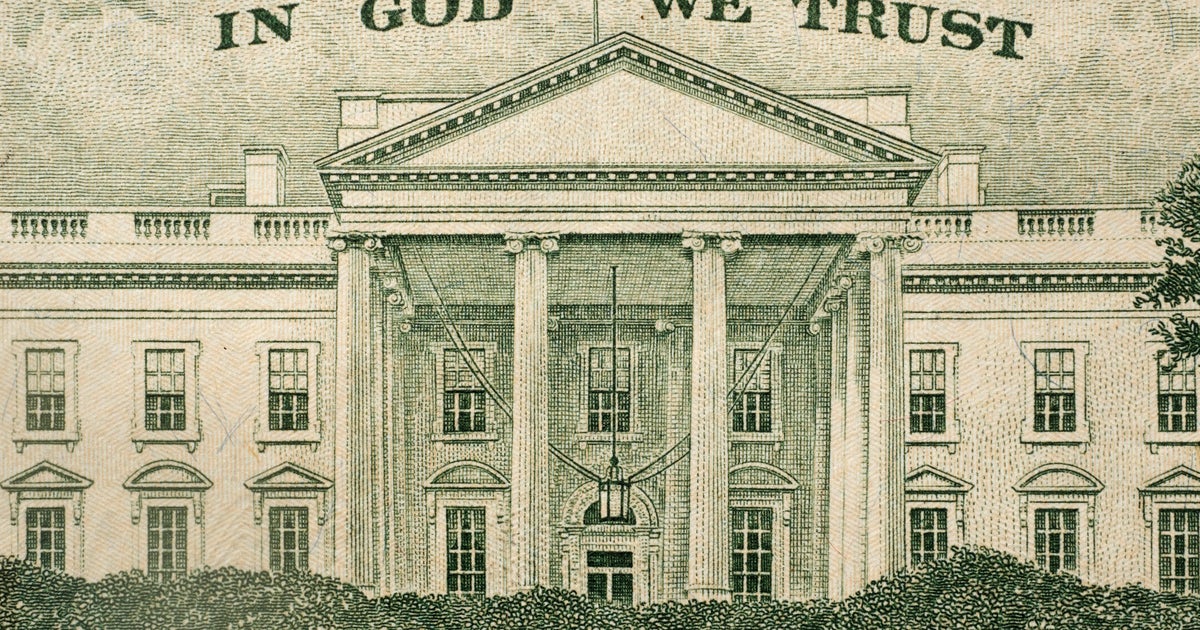
The U.S. president hasn’t been given a raise in more than 20 years.
That means Kamala Harris or Donald Trump will earn the same salary as their predecessor: $400,000 a year, as specified in Title 3 of the U.S. Code, paid monthly. The president also gets an additional $50,000 for expenses (non-taxable), a $100,000 travel account and a $19,000 entertainment budget.
Of course, the nation’s commander in chief is also entitled to other benefits, not least of which is a paid-for mansion known as the White House, as a residence.
Between 1969 and 2001, the last time Congress boosted the chief executive’s pay, the president earned $200,000 annually. In a 1999 hearing on the proposed pay raise, it was noted that compensation for “one of the most difficult, demanding and important jobs on the face of the earth” had not risen in three decades, while the salaries of private-sector chief executive officers were soaring.
Government reform expert Paul C. Light testified that he supported a presidential salary increase “if only to signal that the American political system values its chief executive enough to occasionally boost the base salary.”
How much did U.S. presidents earn in the past?
Historically, the president’s annual salary was worth a lot more when taking inflation into account.
Here’s what presidents made per year during previous historical periods, according to the University of Michigan, citing Congressional Quarterly’s “Guide to the Presidency.” How much that pay is worth in today’s dollars, after adjusting for inflation and based on calculations from Officialdata.org, is noted in parentheses:
1789: $25,000 ($895,741)
1873: $50,000 ($1.3 million)
1909: $75,000 ($2.6 million)
1949: $100,000 (plus $50,000 taxable expense account) ($1.3 million)
1969: $200,000 (plus $50,000 taxable expense account) ($1.7 million)
More money in memoirs
It’s worth noting that presidents remain on the federal government’s payroll after leaving The White House too. Since 1958, former presidents have earned an annual pension, which now amounts to more than $200,000. They also get office space in a place of their choosing and travel expenses, according to the Former Presidents Act of 1958.
U.S. presidents also typically earn much more money when they leave office through book sales, speaking engagements, media deals and other lucrative endeavors.
Ulysses S. Grant was the first U.S. president to write a memoir, which he famously finished only days before his death in 1885. Virtually every modern president, with the exception of Franklin Delano Roosevelt and John F. Kennedy, both of whom died while in office, has written a memoir.
“It’s where a lot of money comes from after they have been president,” Barbara Perry, co-chair of the Presidential Oral History Program at the Miller Center at the University of Virginia, told CBS MoneyWatch. “Written memoirs have earned them millions.”
CBS News
Man dies after being “buried under hot asphalt” while trying to fix dump truck in Mississippi

Police in Mississippi’s capital said a man died Monday when he was trying to repair a dump truck and asphalt poured onto him.
Darrell Sheriff, 41, was underneath the truck working on a hydraulic line when the tailgate opened and asphalt fell on him, Jackson Police Department said in a statement. Jackson Police Chief Joseph Wade told reporters that officers found Sheriff, who was a private contractor, “buried under hot asphalt.”
“It appeared to be some type of malfunction with his dump truck,” Wade said, adding it was a “horrific situation.”
The incident occurred at AJ Materials at around 10:30 a.m. on Monday, CBS affiliate WJTV reported.
Wade said people on scene tried to help Sheriff and “he tried to fight to make it through those injuries but it was just too enormous for him to survive.”
The police chief said the incident left witnessess and family members traumatized.
Wade said that family members said Sheriff was a “good, hardworking family man who just trying to make a living.”
The police department classified the death as an accident.
CBS News
What’s open and closed on Election Day 2024? Check here before you go.
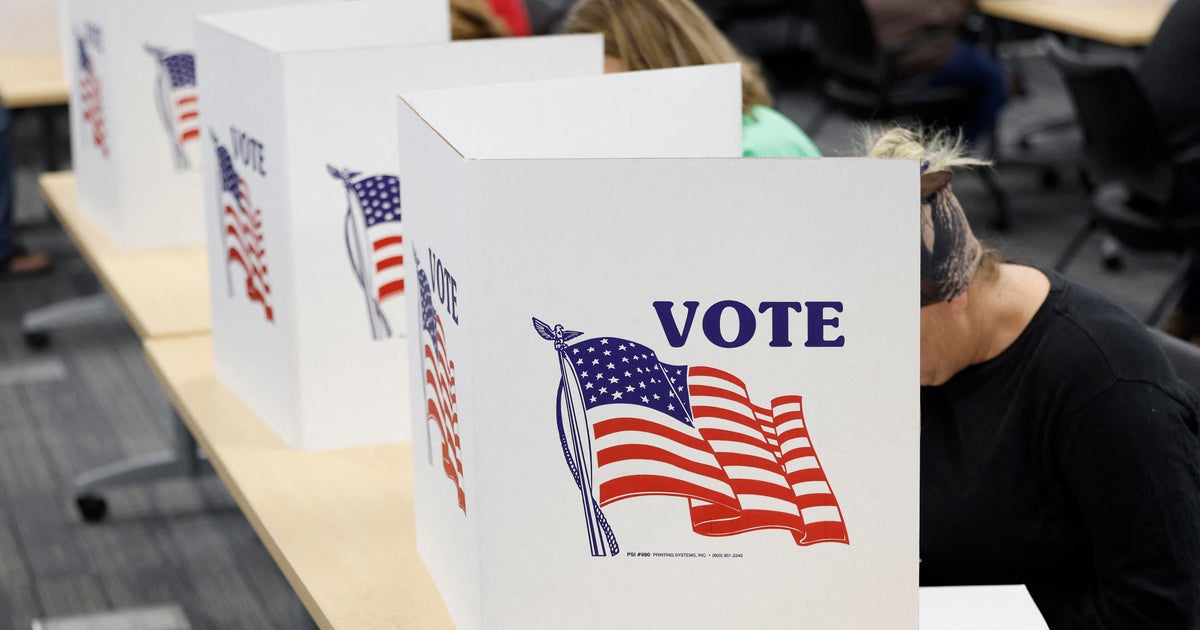
Election Day 2024 is expected to bring out tens of millions of people to their polling places, and many may also want to know what’s open or closed if they need to run errands, like shopping or getting to the post office.
While the Tuesday after the first Monday in November is designated for federal, state and local general elections, it is not a federal holiday. But some state offices will be closed, while workers in 28 states are guaranteed voting leave to take time off from work to cast their ballots.
That may leave some Americans to question whether they’ll find their local stores, banks, post offices, DMV and other services open on November 5. At the same time, some schools are closed on Election Day, partly as some educational facilities double as polling stations.
Are banks open on Election Day 2024?
Yes, banks and ATMs will be open on Election Day, given that it’s not a federal holiday, nor observed by the Federal Reserve system.
Wells Fargo, Citi and other major banks will be open on Nov. 5, according to their schedules. However, those banks and others will be closed Nov. 11, due to Veterans Day, which is a federal holiday.
Is the Post Office open on Election Day 2024?
Yes, the U.S. Postal Service will be open on Nov. 5 because it isn’t a federal holiday.
The USPS will also be delivering ballots mailed ahead of Election Day, although the postal service recommended that people who are voting by mail post their ballot by Oct. 29, or last Tuesday, to ensure timely delivery.
USPS workers will be delivering regular residential and business mail on Nov. 5, while its stores and other locations will be operating with their normal hours.
Is the DMV open on Election Day 2024?
Some states recognize Election Day as a public holiday, which means some offices there, including Department of Motor Vehicle offices, may be closed on November 5. U.S. states where DMV locations will be closed on Nov. 5 include:
- Delaware
- Illinois
- New Jersey
- Virginia
- West Virginia
Other municipal; offices could also be closed in these and other states or cities that observe Election Day as a holiday. For instance, New York state and city courts will be closed on Nov. 5, as well as New York City offices.
Are any retailers closed on Election Day 2024?
Stores are generally open on Election Day given that it’s not a federal holiday. Among those that will be open are Costco, Walmart and Target.
However, some stores may have modified hours to accommodate workers who are voting. For instance, Bath & Body Works locations will open at noon on Nov. 5, rather than the retailer’s regular 10 a.m. opening time.
Are bars and liquor stores open on Election Day 2024?
Yes, bars and liquor stores are open on Election Day, although that wasn’t always the case in some states.
South Carolina repealed its ban on liquor sales on Election Day in 2014, with the state joining the rest of the nation in permitting spirits and other drinks to be sold on voting day.
That ban, which dated to the 1800s, was designed to reduce bribery and corruption during elections, Reuters reported. Election Day bans on alcohol sales were once common in the U.S. because of fears that politicians would buy votes by providing drinks, according to the New York Times







